by Ellen Moses
Day Five: Chongbei Road Race
For the third stage, a 72.8-km road race, we went out with a purpose. We rode together very well and covered many of the moves. Alison didn’t have to work as hard because we were there watching the attacks and closing down breaks. We were able to help her finish in 8th place. This was extremely rewarding. The level of racing, the active teamwork—bridging, riding on the front, going with attacks—all this made it incredibly fun—to ride like that and to help someone get that kind of result. By this point, I felt very comfortable with the racing style. I wasn’t watching as much; I was participating. It rained throughout the whole race and we got completely covered in mud.
After having eaten the same food at the hotel since we had arrived, we went out for lunch. The food was good and we were happy. Camie had spaghetti Bolognese and pizza with bamboo shoots, cheese, and tomato sauce. Angela had a steak, and I had steamed rice and chicken cooked in a lotus leaf. While we were in the restaurant, the sky turned blue for the first time since we’d arrived.
With the sun out, the pedestrian shopping mall, which we’d been walking through since we’d arrived, looked like a totally different place. Storefronts looked more vibrant. The decorative stonework seemed prettier. The people had a different appearance. Spirits seemed to have lifted. We had ridden our bikes through rain and mud in one of the best races I’d ever been in, and then everything turned sunny, clean, and bright.
A time trial and three days of stage racing had pretty much taken its toll, so Camie, Alison, and I took rickshaws back to the hotel. We went through the surrounding neighborhood, where there was much activity, but no sound of motors. I liked not hearing the constant roar of cars and trucks, and it was particularly nice to be in the back of a pedaled vehicle.
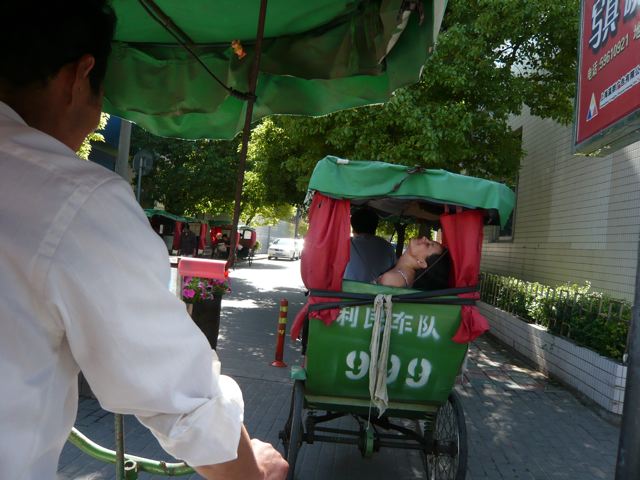
Day Six: Chongdong Road Race
At the beginning of the fourth stage, a 100-km road race, the UCI Commissaire addressed the peloton in English. There would be, he stated, no shoving or pushing allowed during the race. If there were any such shoving or pushing, the rider would be disqualified. All the riders who understood English gave an audible sigh of relief. When the Commissaire repeated his statement in Chinese, those riders who understood him laughed—all of them did. We couldn’t believe it.
The course was a long out into a headwind and then a smallish square, which wove through a chain of four or five very old villages. Again, the drum corps, school children, and factory workers were out spectating. There were attacks after attacks. A group would go up the road, and we’d either have a rider in it, or try to bridge up to it, or close it from the back. We were working very hard to be in the breaks or close down the gap. After the second sprint point, we missed the moment. I had just bridged a pretty far distance, and while I was recovering, it would have been best for us to make the break or close down the gap, but I was shot, hanging on dearly, and trying to recover—and we still had 50 kilometers to go! After we didn’t make that break, we never caught them. What was shocking to me was how quickly the second half of the race went by, with our average speed over 50 km/hr. I’ve never had a finish that fast. The Giant Pro Team ended up winning the day and winning the stage race.
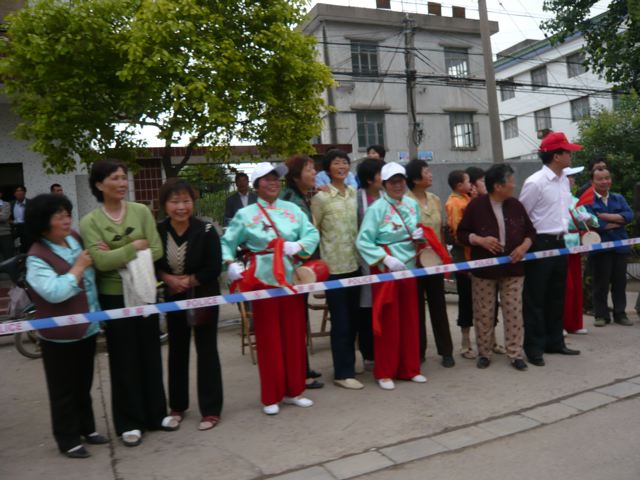
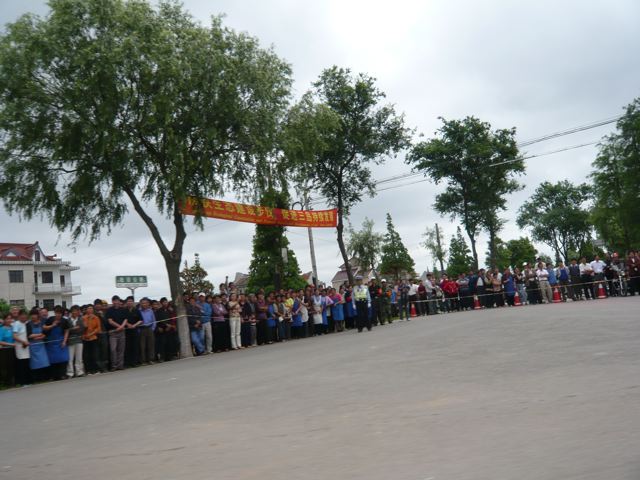
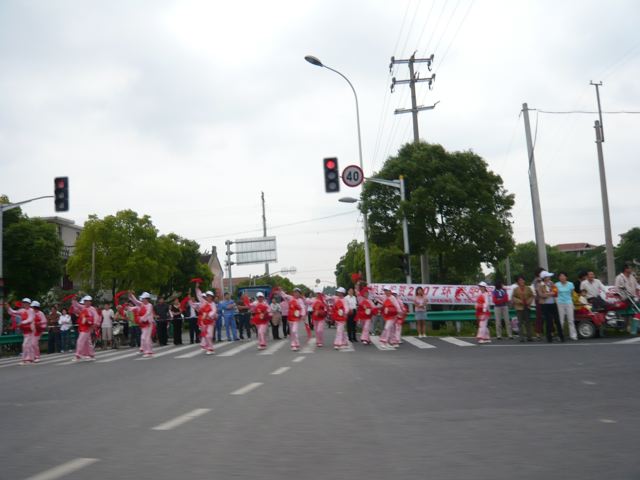
The Commissaire’s statement had been effective. The entire tone of this stage had been different. It was still aggressive and competitive, but there wasn’t intimidation from other riders. They weren’t elbowing, shoving, or strong-arming. They just gave up those tactics and rode elegantly. The flow was much more at ease because the tension that had been in the earlier races was absent.
After that, we all packed our bikes and packed our bags in preparation for the next day’s journey. We did a little shopping before we headed out by rickshaws on a 40-minute journey to the Shou An Temple. Our three rickshaw drivers joyfully handed over their bikes for a spirited rickshaw race (the unofficial 5th stage), in which Stephanie pedaled so quickly that she caused a mechanical problem that ended the competition. Never, outside the tour, did I see anything speeding—not cars, scooters, or bicycles, but once these girls got on the rickshaws—they were going pretty fast!
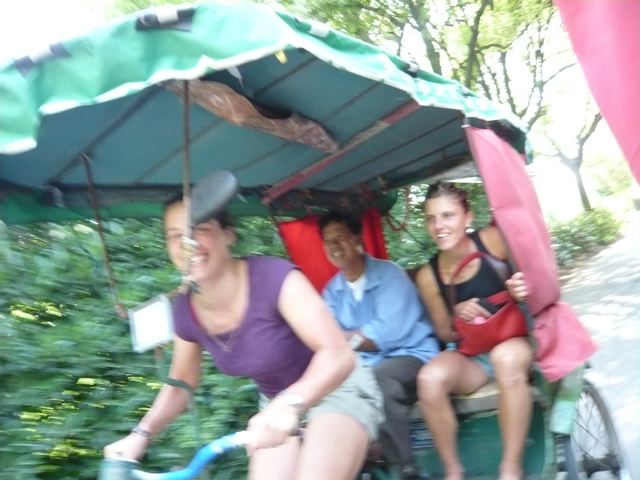
The temple, built in 942 A.D., was the oldest building on the island. It looks quaint in the pictures; its presence, however, was quite magnificent, and offered a different view of the culture. I had no idea there were so many representations of Buddha. They ranged in size and gender. The largest was a 30-foot long female Buddha made of marble from Burma. No one at the temple spoke English, and our interpreter didn’t know much about Buddhism, so I didn’t get any deeper explanation of the rituals and practice of that religion.
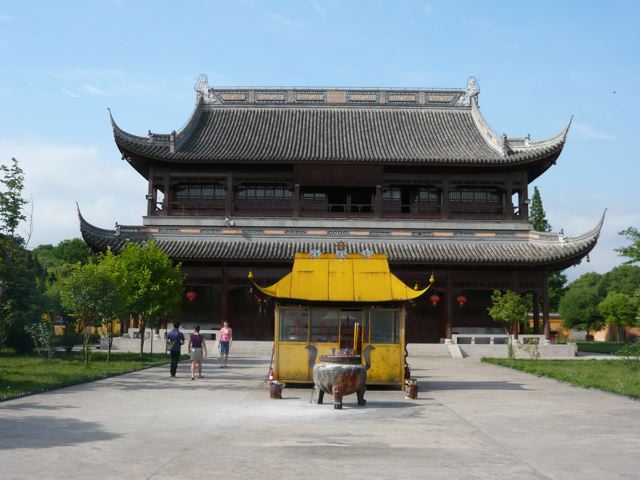
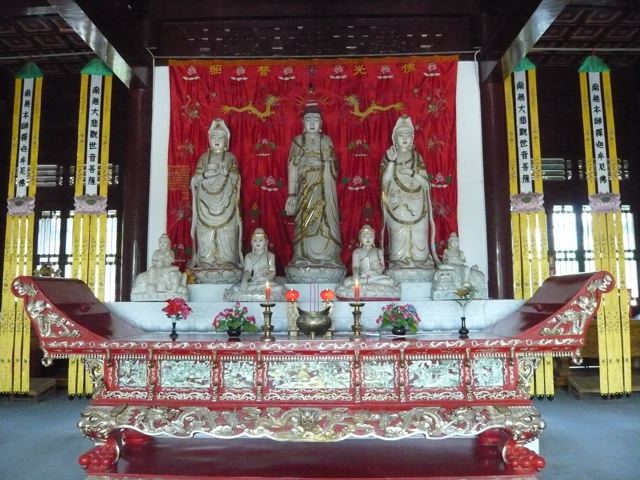
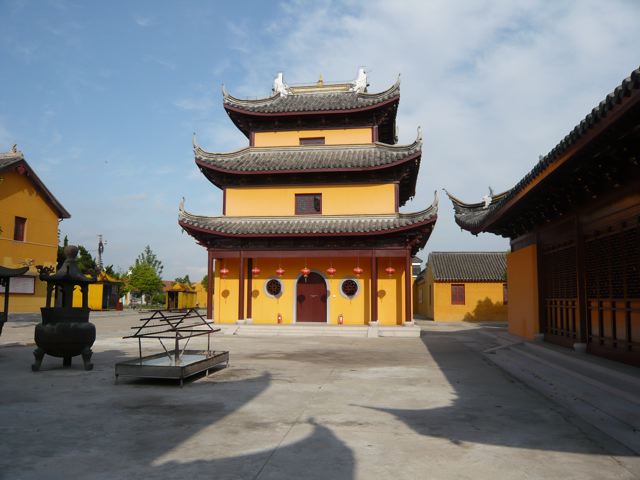
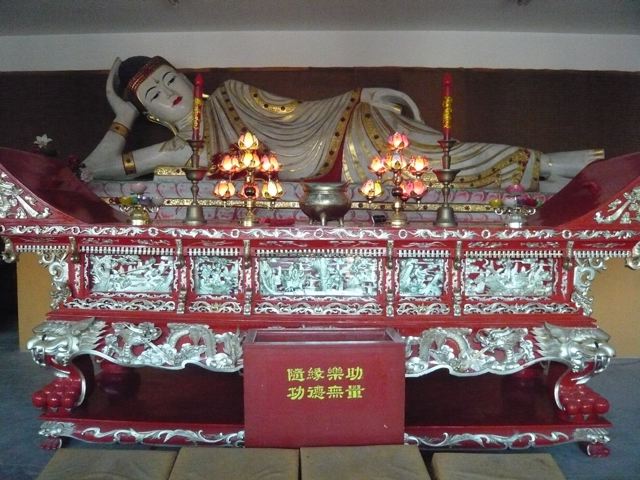
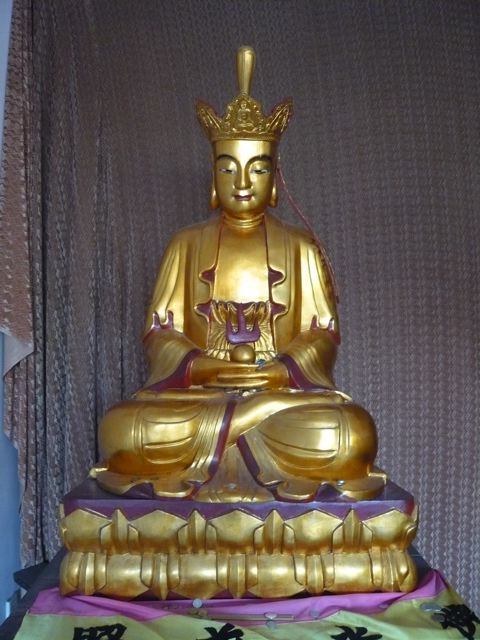
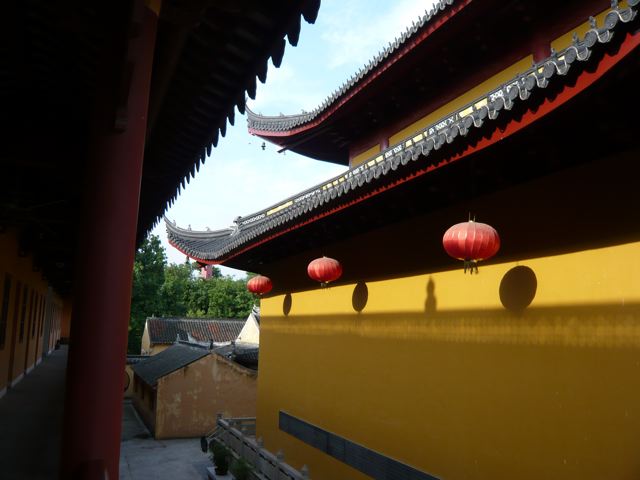
When we got back into the rickshaws, we were completely hungry, and I wanted to stop at the open-air market. We bought fruit. I bought a whole bunch of cookies and ate them right away. A fisherman brought up a bunch of freshly caught fish. Camie was freaking out, “They’re still alive!†Our rickshaw driver bought one and put it under the seat. The best thing about that little stop was that we interacted with the people from the village. They were welcoming and interested in us. It was easy to purchase the food even though we couldn’t speak the language at all. This experience outside the city was a nice way to end our trip, by going out, seeing sights, and having an adventure.
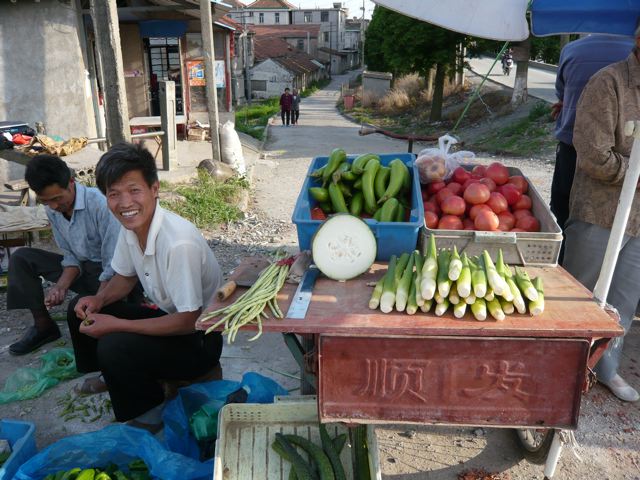
At the closing ceremony, they gave out glass trophies and huge bouquets to the general-classification winners, stage winners, and sprint-points winners. Five teenage girls who had been part of the formal ceremonies all week thronged around Fasi and wanted his phone number. His Hong-Kong style, had made and impression on them.
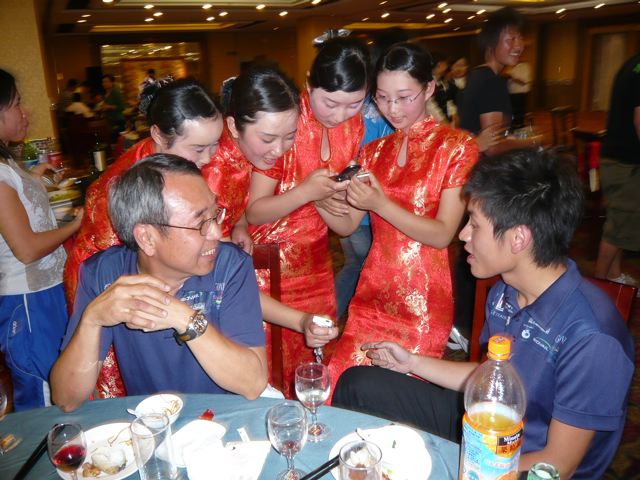
Day Seven: Home
After an hour-and-a-half ferry ride across the Yangtze River, we boarded a bus and entered Shanghai’s morning rush—bumper-to-bumper trucks loaded with shipping containers. From Shanghai, we flew to Beijing, power-shopped in the luxury airport mall, where there was even a Starbucks, though we didn’t have time for coffee before we had to board the plane.
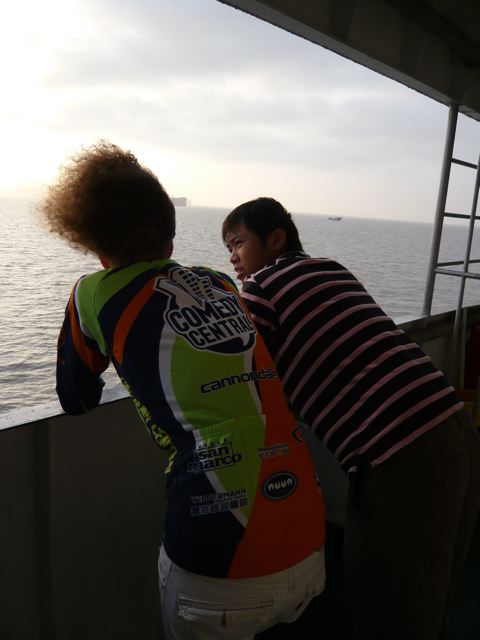
I’ve been back four days now and hope tonight that I will not wake up at 4 A.M. Turning the clock around was easier going there than coming back.
Tour of Chongming Island Pt. 3
Section head text.
4 Comments
Comments are closed.

In 2006 a men’s tour was held. I do not know if future tours are planned for men or women.
Thanks for sharing the adventure, Ellen. I’m so glad you ladies had this exciting experience. Wish I could have gone!
What a fabulous adventure!Thanks for sharing it in such detail! Was there a men’s tour?
Live fish are fresher!